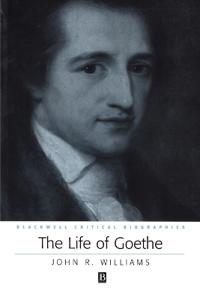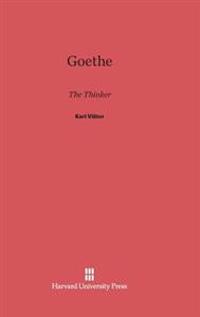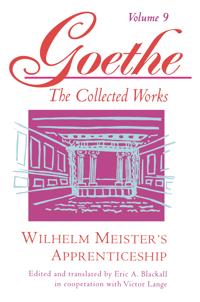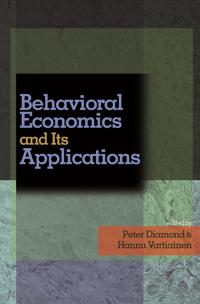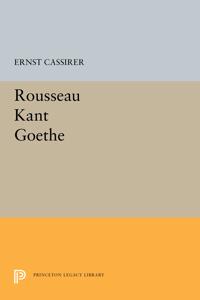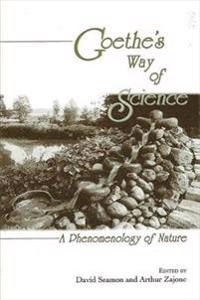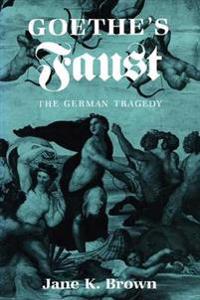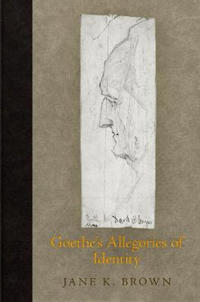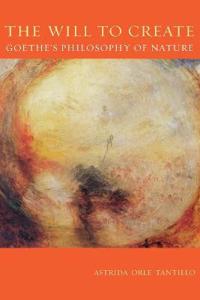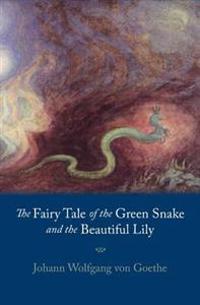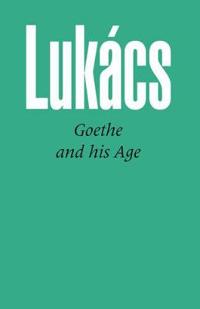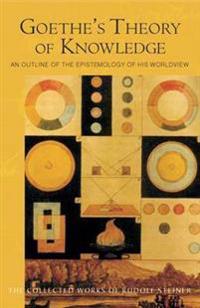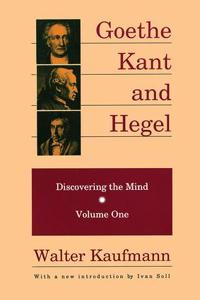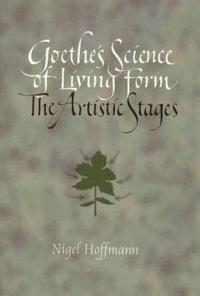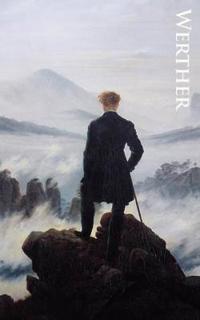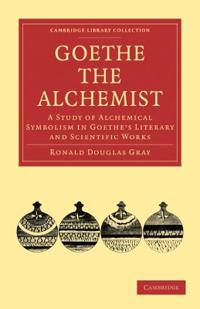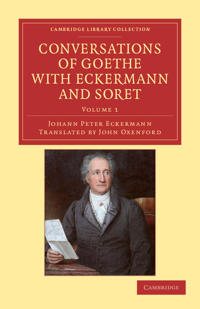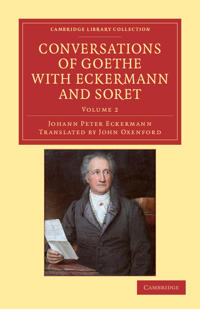The Life of Goethe (Häftad)
avJohn R. Williams
ISBN: 9780631231738 - UTGIVEN: 200108Johann Wolfgang von Goethe is Germany's most celebrated, prolific and versatile writer. He established a major European reputation and profoundly influenced his contemporaries and literary successors, not least among them the British Romantic writers Coleridge, Scott, and Byron. Goethe's life spanne[...]
Wilhelm Meister's Apprenticeship (Pocket)
avJohann Wolfgang Von Goethe, Eric A. (EDT) Blackall, Eric A. Blackall
ISBN: 9780691043449 - UTGIVEN: 1995-04"Wilhelm Meister's Apprenticeship", a novel of self-realization greatly admired by the Romantics, has been called the first Bildungsroman and has had a tremendous influence on the history of the German novel. The story centers on Wilhelm, a young man living in the mid-1700s who strives to break free[...]
Conversations of German Refugees (Pocket)
avJohann Wolfgang Von Goethe
ISBN: 9780691043456 - UTGIVEN: 1995-10-16Behavioral Economics and Its Applications (Inbunden)
avJohann Wolfgang von Goethe
ISBN: 9780691122847 - UTGIVEN: 200703In the last decade, behavioral economics, borrowing from psychology and sociology to explain decisions inconsistent with traditional economics, has revolutionized the way economists view the world. But despite this general success, behavioral thinking has fundamentally transformed only one field of [...]
The Essential Goethe
ISBN: 9780691162904 - UTGIVEN: 2015-12The Essential Goethe is the most comprehensive and representative one-volume collection of Goethe's writings ever published in English. It provides English-language readers easier access than ever before to the widest range of work by one of the greatest writers in world history. Goethe's work as pl[...]
Rousseau-kant-goethe
ISBN: 9780691621265 - UTGIVEN: 2015-12Translated by James Gutmann, Paul Oskar Kristeller, and John Herman Randall, Jr. Originally published in 1945. The Princeton Legacy Library uses the latest print-on-demand technology to again make available previously out-of-print books from the distinguished backlist of Princeton University Press[...]
Goethe's Allegories of Identity (Inbunden)
avJane K. Brown
ISBN: 9780812245820 - UTGIVEN: 2014-01A century before psychoanalytic discourse codified a scientific language to describe the landscape of the mind, Johann Wolfgang von Goethe explored the paradoxes of an interior self separate from a conscious self. Though long acknowledged by the developers of depth psychology and by its historians, [...]
The Sorrows Of Young Werther (Pocket)
avJohann Wolfgang Von Goethe, Burton Pike, Burton Pike
ISBN: 9780812969900 - UTGIVEN: 200502The Will to Create: Goethe's Philosophy of Nature (häftad)
ISBN: 9780822961451 - UTGIVEN: 2002-04Better known as a poet and dramatist, Johann Wolfgang von Goethe (1749 1832) was also a learned philosopher and natural scientist. Astrida Orle Tantillo offers the first comprehensive analysis of his natural philosophy, which she contends is rooted in creativity.Tantillo analyzes Goethe s main scien[...]
Fairy Tale of the Green Snake and the Beautiful Lily (Häftad)
avJohann Wolfgang Von Goethe
ISBN: 9780833400260 - UTGIVEN: 1991-06Goethe Dies
ISBN: 9780857423276 - UTGIVEN: 2016-04This collection of four stories by the writer George Steiner called one of the masters of European fiction is, as longtime fans of Thomas Bernhard would expect, bleakly comic and inspiringly rancorous. The subject of his stories vary: in one, Goethe summons Wittgenstein to discuss the "Tractatus Log[...]
Goethe on Science (Häftad)
ISBN: 9780863152375 - UTGIVEN: 1996-10A systematic arrangement of extracts from Goethe's major scientific works which reveal how fundamentally different his approach was to scientific study of the natural world. According to Goethe, our deepest knowledge of phenomena can arise only from a contemplative relationship with nature.[...]
Goethe
ISBN: 9780871404909 - UTGIVEN: 2017-05Here, Rudiger Safranski sets his sights on the writer considered the Shakespeare of German literature. Goethe (1749-1832) awakened a burgeoning German nation and the European continent with his electrifying novel The Sorrows of Young Werther. Safranski scoured Goethe's oeuvre, relying on primary sou[...]
Goethe, Kant, and Hegel
ISBN: 9780887383700 - UTGIVEN: 1991-03This immensely readable and absorbing book - the first of a three-volume series on understanding the human mind - concentrates on three major figures who have changed our image of human beings. Kaufmann drastically revises traditional conceptions of Goethe, Kant, and Hegel, showing how their ideas a[...]
Goethe's Faust (Pocket)
avEdward F. Edinger
ISBN: 9780919123441 - UTGIVEN: 1990-11Faust was Jung's lifelong companion. Here the den of American analysts shows that Faust is at once a psychological portrait of the modern psyche, a symbolic description of a depth analysis and a guide to understanding alchemy.[...]
Goethe's Science of Living Form: The Artistic Stages (häftad)
ISBN: 9780932776358 - UTGIVEN: 2007-01In this groundbreaking book, Nigel Hoffmann shows that understanding the dynamic, living qualities of nature requires artistic capacities. He distinguishes four stages of scientific inquiry that correspond to the four classical elements of Earth, Water, Air, and Fire. Modern analytical science with [...]
The Sorrows of Young Werther (Häftad)
avJohann Wolfgang Von Goethe, Liberty Hardy
ISBN: 9780988537002 - UTGIVEN: 2012-12Goethe the Alchemist (Pocket)
avRonald Douglas Gray
ISBN: 9781108015288 - UTGIVEN: 2010-06In his autobiography, Goethe half-apologetically admits the youthful enthusiasm he experienced for alchemical and mystical readings: Georg von Welling's obscure Opus Mago-Cabbalisticum et Theosophicum and the anonymously published Aurea Catena Homeri, as well as works by Paracelsus, Basilis Valentin[...]
Conversations of Goethe with Eckermann and Soret (Häftad)
avJohann Peter Eckermann
ISBN: 9781108040914 - UTGIVEN: 201112Originally published by Goethe's friend and personal secretary, Johann Peter Eckermann (1792-1854) in German in 1836, this work comprises Eckermann's recollections of his conversations with the German writer and philosopher during the last nine years of his life. Eckermann published a further volume[...]
Conversations of Goethe With Eckermann and Soret
ISBN: 9781108040921 - UTGIVEN: 2011-12Originally published by Goethe's friend and personal secretary, Johann Peter Eckermann (1792-1854) in German in 1836, this work comprises Eckermann's recollections of his conversations with the German writer and philosopher during the last nine years of his life. Eckermann published a further volume[...]

